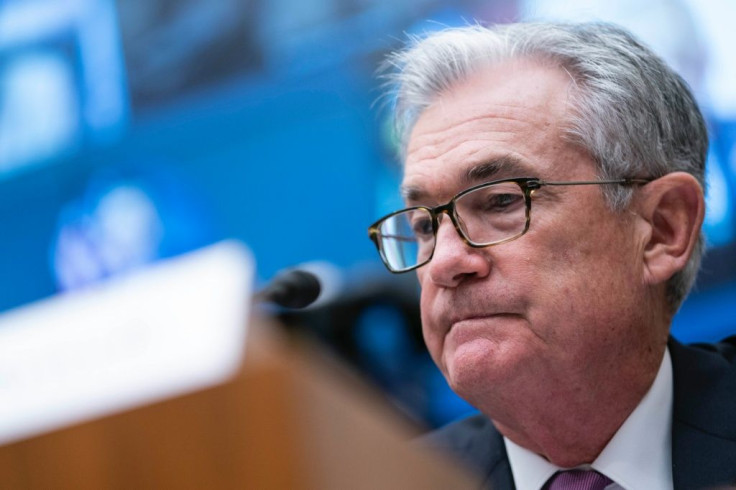US Fed Pulls Back On Stimulus But Will Be 'Patient' On Rate Hikes
The Federal Reserve will begin to slow its stimulus bond purchases this month as the US economy makes a solid recovery from the pandemic, but the central bank will be patient before raising interest rates, Fed Chair Jerome Powell said Wednesday.
Amid growing concern about rising prices, Powell stuck to his view that current higher-than-expected inflation levels will come down in the second half of 2022 as the supply bottlenecks are resolved.
The central bank wants to see the labor market in the world's largest economy heal further before increasing the benchmark borrowing rate off zero, he said.
"We think we can be patient," Powell told reporters.
But the Fed was prepared to act if needed, and "if a response is called for, we will not hesitate."
The Fed slashed the benchmark borrowing rate to zero in March 2020 just after the pandemic began on US shores, causing widespread business shutdowns.
It also began buying massive amounts of securities to support the economy and prevent a financial collapse, most recently at a monthly rate of at least $80 billion for Treasury bonds and $40 billion for agency mortgage-backed securities.
Those steps coupled with massive federal stimulus programs helped the world's largest economy rebound strongly, with consumers spending freely on cars, houses and other goods in recent months.
But supply bottlenecks and shortages have caused prices to rise, prompting criticism that the Fed has become overly complacent about inflation risks.
As a first step to walk back the stimulus, the Fed's policy-setting Federal Open Market Committee (FOMC) announced that this month it will start reducing the monthly pace of purchases by $10 billion for Treasuries and $5 billion for mortgage-backed securities.
The FOMC expects to continue lowering the total by the same amount each month, which means bond purchases would cease by the middle of next year, Powell said.
However, the committee "is prepared to adjust the pace of purchases" if the economic outlook changes, the statement said.

Addressing critics of his patient stance, Powell, who is awaiting word on whether President Joe Biden will name him for a second term, said, "I don't think we are behind the curve. I believe policy is well-positioned to address the range of plausible outcomes."
But more economists are predicting faster tapering and more aggressive rate hikes.
Diane Swonk of Grant Thornton expects both, with three rate hikes next year.
"The Federal Reserve has been growing more divided over the course of the summer and into the fall. Chairman Powell would prefer to wait out inflation longer than many of his colleagues," she said.
"We expect the FOMC to accelerate the tapering of its asset purchases in early 2022. This will open the door to sooner and more aggressive rate hikes."
Powell notes that the economy would have been on a better track if the wave of infections over the summer caused by the Delta variant of Covid-19 had not caused the recovery to stumble and "stopped job creation."
But he said he expects to see more improvement in areas such as travel and leisure.
"We don't think it's time yet to raise interest rates. There is still ground to cover to reach maximum employment," Powell said.
"It's appropriate for us to see what the labor market and what the economy look like when they heal further."
A report from payroll services firm ADP released Wednesday showed private companies hired 571,000 workers in October.
However the economy is still short about five million jobs compared to before the pandemic, and employers nationwide say they are struggling to hire and retain workers, which is starting to push wages higher.
Inflation currently is running at more than double the Fed's two percent goal, and Powell acknowledged that the severity and duration of the price increases were more than officials anticipated.
He continues to project that inflation will come down late next year, but recognized that judging when supply chain issues will be resolved "is highly uncertain."
© Copyright AFP 2024. All rights reserved.











